What’s the true cost of scaling a brick-and-mortar store making $64K into a multi-channel ecommerce powerhouse generating $15 million in annual sales?
In this special Q&A, Red Dress Boutique’s founder and owner Diana Harbour reveals how her company:
-
Replatformed from Magento
-
Built an “impossible” Shop the Look feature and preserved SEO
-
Has already grown 34% in March and 23% in April year-over-year
Why do you need $600,000? Why are you here?
Mark Cuban’s questions cut through the air like a scalpel.
It cut through Diana and Josh Harbour’s nine-year backstory of launching a local storefront in Athens, Georgia one year into their marriage. It cut through Red Dress Boutique’s rise from $64K as a retail location to $500K when they launched online to $7.5 million when they entered Shark Tank.
And, unbeknownst to Cuban and 9.13 million viewers, it also cut through Diana’s personal struggles she would only share about years later.

Red Dress Boutique isn’t the only multi-million dollar business to have migrated from Magento; read about the results five other merchants have already achieved here
“We need $300,000 of it,” Diana answered, “for a new website because we have actually maxed out the capacity of the out-of-the-box system we have.”
“The backend system for our website,” added her husband and Red Dress Boutique co-owner Josh, “is really not giving us good business data at all.”
That was 2014. In the end, Cuban bought 15% of the company for $600,000.
With a billionaire investor on board and sales on the rise, you’d think pulling together a sparkly new website would be easy. But for the Harbours, it was a long process that eventually culminated in a partnership with Shopify.
Two Years to Find the Right Platform?
When Shark Tank producers caught up with Diana and Josh on an episode of “Beyond the Tank” in 2015, the couple struggled to convince Cuban why they needed a brand-new website.
Cuban and his advisors argued that Red Dress Boutique could save big bucks by improving and rehabbing their existing site, but its founders weren’t so sure. On that show, the pair decided to ignore Cuban’s advice and go forth with the new site.
“It’s going to take you forever to get that right, it’s just the nature of technology,” Cuban said in the special.
“When it comes down to it, that is our call,” Josh responded.
Cuban was right, it did take forever. But that’s because the founders scouted two years for the right enterprise ecommerce platform.
Given that replatforming can be a source of anxiety and fear — especially when you operate in the $10-$20 million revenue range — I connected with Diana to ask her a few questions about the process …
What was your biggest concern in replatforming?
“Creating a new site with ‘wow’ factor. There’s a lot of competition among retail right now, and I wanted to make sure we created something that distinctly set us apart from the competition.”
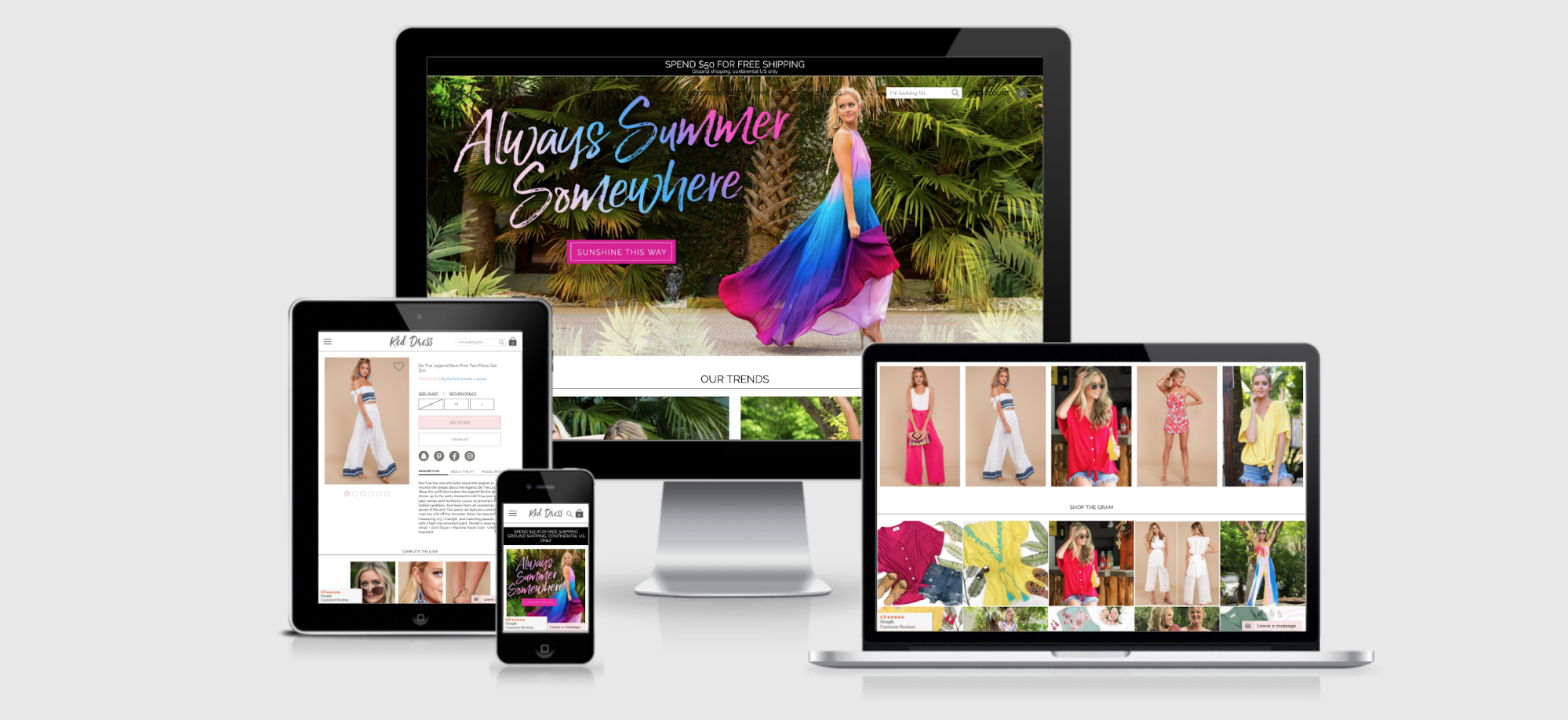
“It might sound like a small thing, but I love Swatchify. The ability to easily create detailed variants of our most-popular products in true-to-life color is fantastic.”
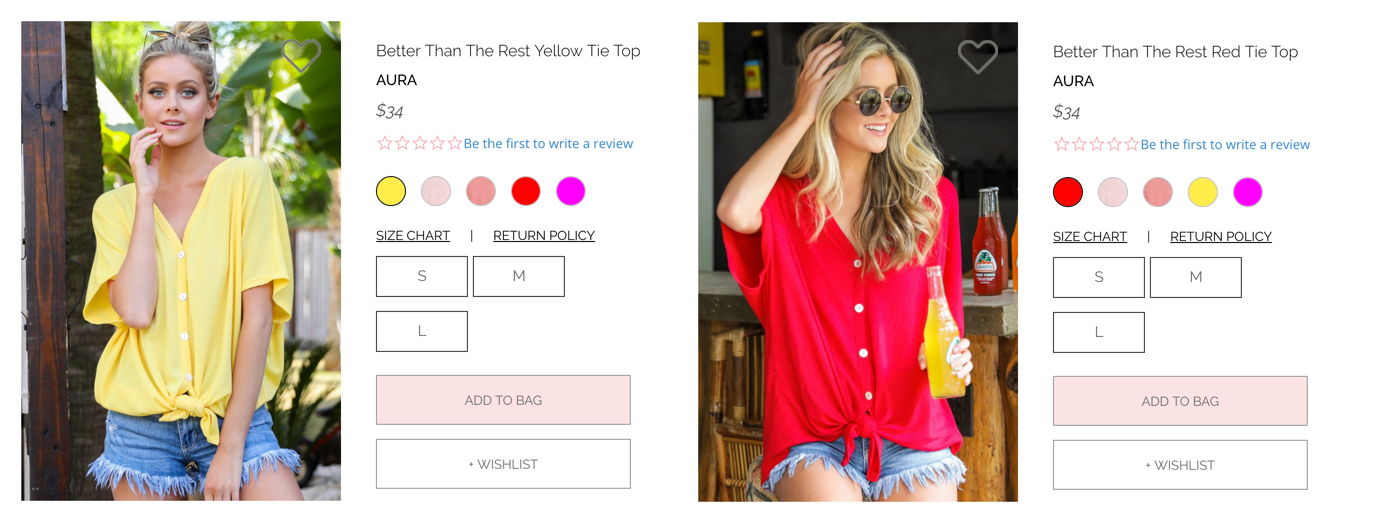
Why did you choose Shopify?
“I spent two years scouting platforms, looking at reputation, ease of use, customization, and speed. Shopify blew me away in the demo.
“Red Dress Boutique is the only ecommerce site to offer the ability to buy an entire outfit in one easy click with ‘Shop the Look.’
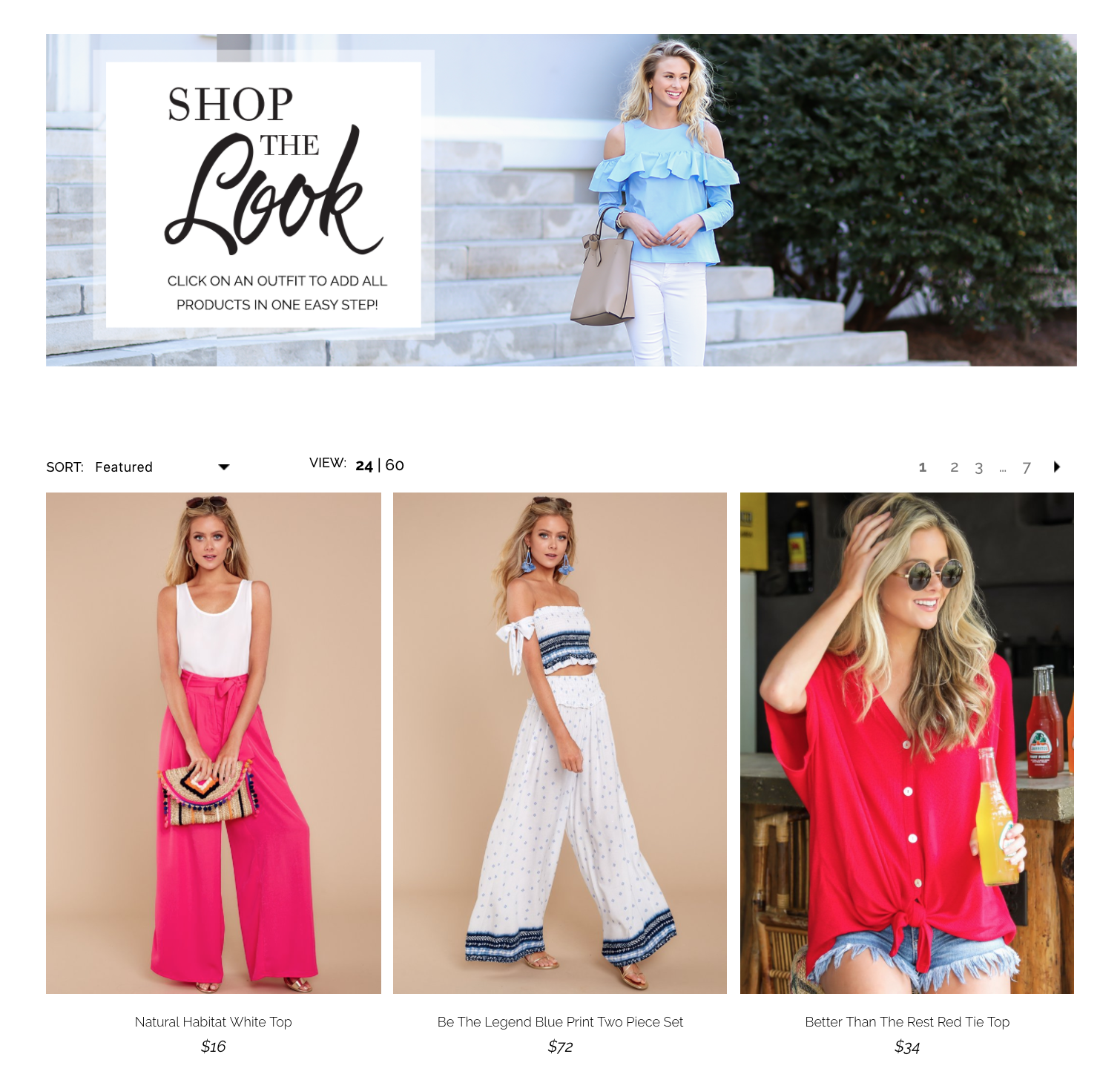
“Shop the Look was born out of my own shopping frustration. I've always spoken about how Red Dress Boutique helps our busy women get a complete look for less because we know how busy she is and how little time she has for herself.
“Shopping for myself, I was spending so much time chasing links for shoes I saw in outfits, then the bag, then the jewelry and so on, that most of the time I would bounce from a site. I wanted to be able to buy an entire look in one page!
“So, I drew it on a piece of paper and showed our developers and several times I was told, ‘No. Can’t be done. It’s going to be too difficult and costly to customize.’ But I do impossible things on a daily basis and the developers did a beautiful job on it!’
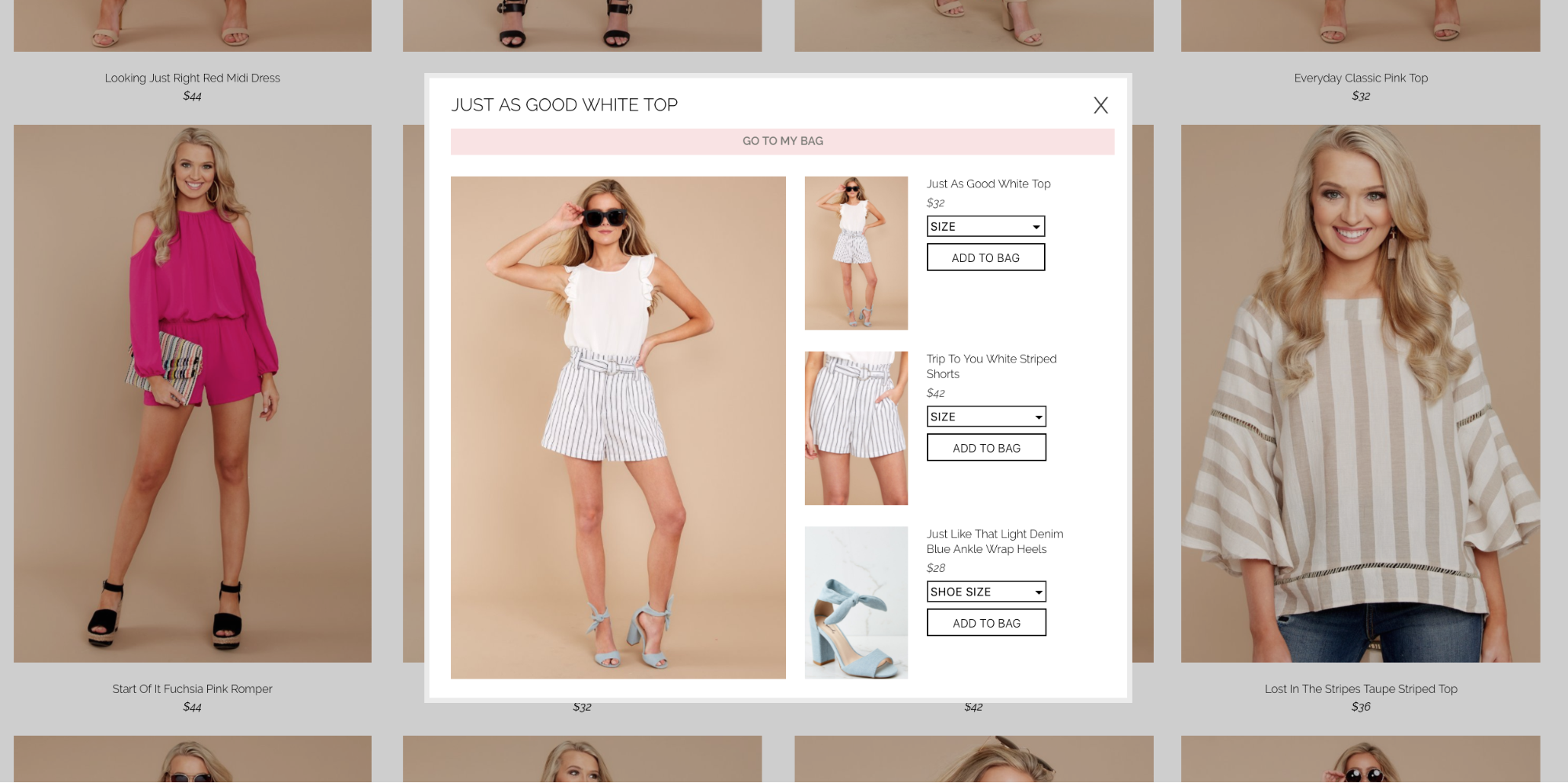
What have the results been since replatforming?
“Results have been great! The site is faster and looks a lot better, which is pretty amazing considering we just picked up our site from one platform and dropped it onto another. That could have gone really bad a hundred different ways.
“And it’s showing in sales. We’re already up 34% in March and 23% in April over last year.”
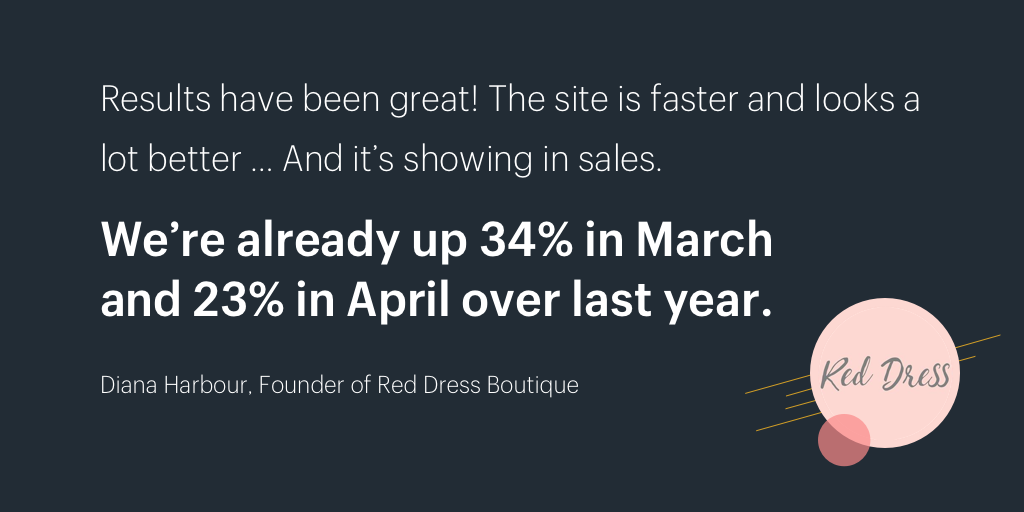
How did your test panels react to the new site?
“We pride ourselves on ‘lifting the veil’ for our customers. They know our names, faces, and can reach us in person. We have a VIP group of our 250 ride-or-die customers; they were our trial group and the reason it came out so beautifully.
“After sharing the site design with our VIP customers, we got back PowerPoint presentations of issues, adjustments, and things we hadn’t even thought about. It’s one thing to have it go through developer testing, but your customers can tell you what they want better than any paid firm could!”
Were there any surprising results of the customer trials?
“Surprising results were just little things we missed. Like adding a View Cart button on Shop the Look for desktop or not being able to use the menu on certain devices and browsers.

What sales channels are most lucrative for you?
“We’ve been doing influencer marketing for a while, especially through rewardStyle. When we started with it, we were the first site of our size to partner at that level.
“Social media has been a huge part of our success story. Our Facebook page, advertising, Shopping on Instagram, and Stories that link directly to products have also been a big boost.
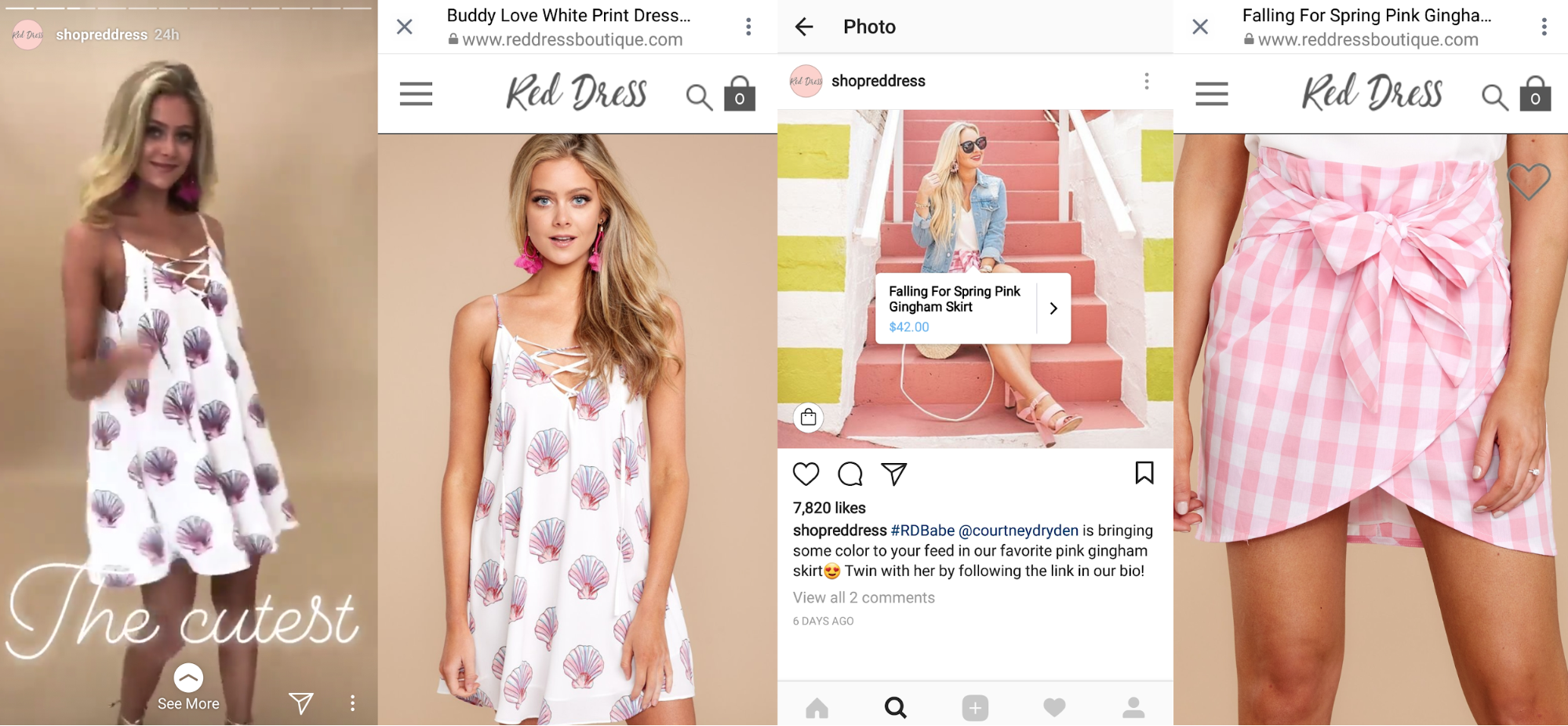
“But social media goes way beyond multi-channel ecommerce. Our posts and profiles connect us to our audience in a way few retailers have been able to leverage. Since the beginning, I’ve used content — onsite through blogs and offsite through Facebook in particular — to tell our story, even when it’s a struggle.
On top of that, social is our best source of relationships and insights into our audience’s style and fashion loves.
How much has Shopify reduced costs compared to Magento?
“An annual license with Magento Enterprise starts around $50,000 and goes up. Hosting was costing us another $6,000 per month and the CDN was $2,000 per month.
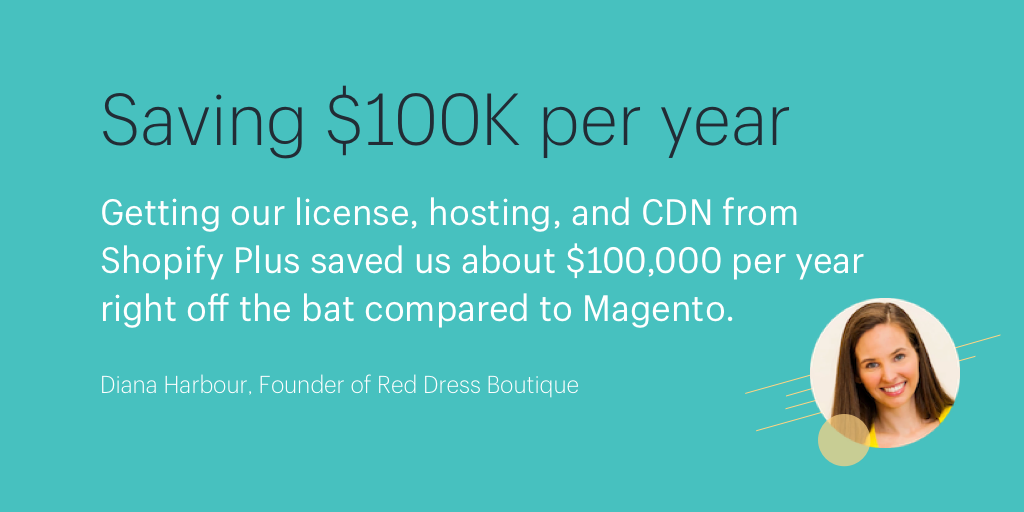
“Getting our license, hosting, and CDN from Shopify saved us about $100,000 per year right off the bat compared to Magento. On top of that, Magento was constantly breaking so we had to spend money every month fixing it. We haven’t had to do that with Shopify.”
Do you have any advice on replatforming?
“Be thorough. You don’t want to lose the SEO you have built, your backlinks, orders, or customer history. Make a list and check it five dozen times.
“The Visiture team was involved from the beginning and provided a comprehensive audit and consultation as we moved onto the Shopify platform.
“We took their SEO advice seriously. Especially technical SEO, like …
-
Carefully considering 301 redirects to retain organic traffic
-
Diligently checking that meta descriptions have carried over
-
Paying attention to changes in the website’s robots.txt file and XML sitemap generation to ensure that unnecessary pages don't get indexed and impede crawl efficiency
“Executing on each action item is one of the ingredients that made this platform migration so successful.”
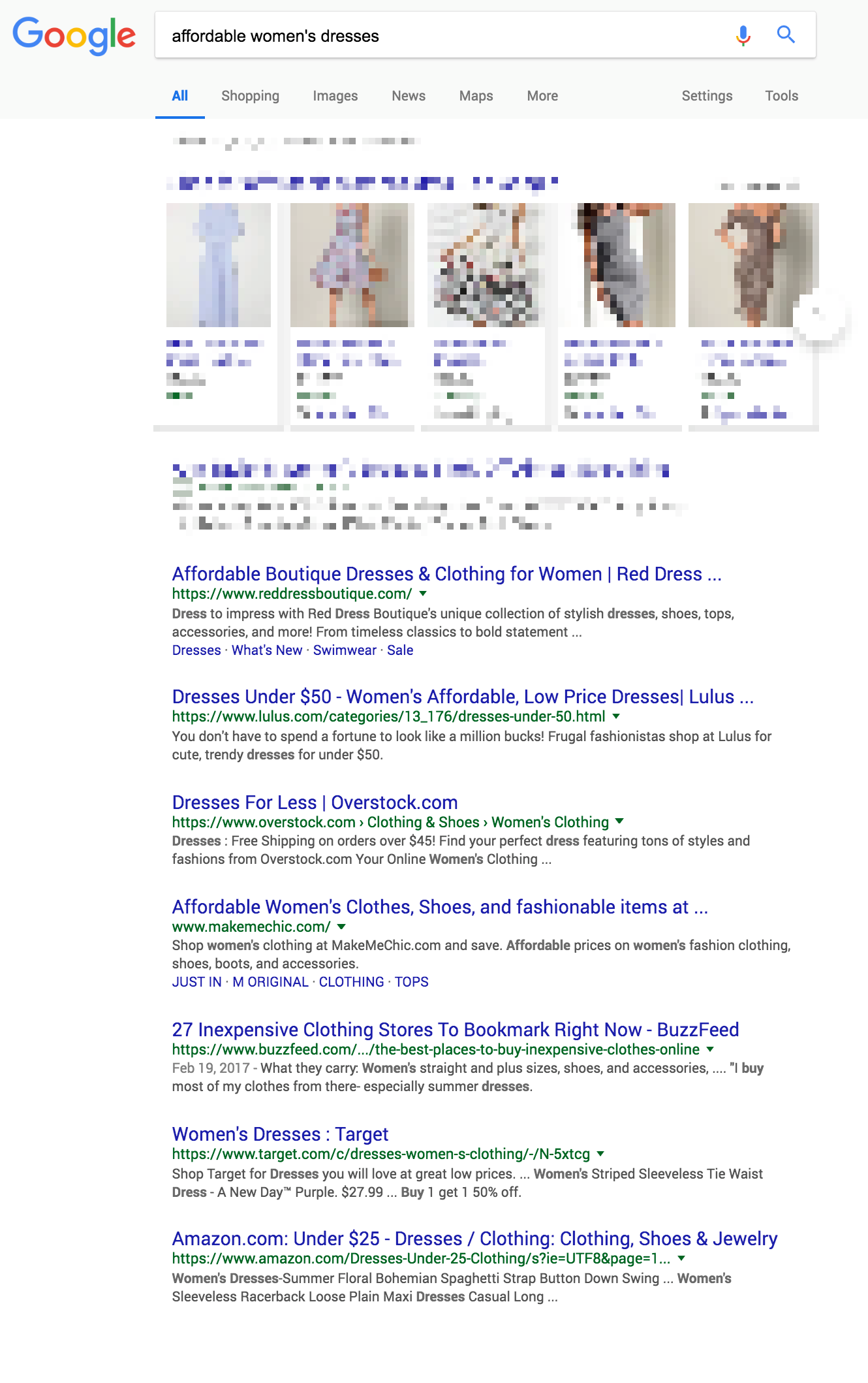
Google Incognito results for “affordable women’s dresses”
The True Cost of Scale
Reducing costs by over $100,000 a year while hitting double-digit growth just months after replatforming could lead you to believe that the price tag for scaling a wildly successful multi-channel fashion brand is minimal.
On the technical front, it’s certainly less than most people assume.
But there’s another cost, a more hidden cost, one that Diana shared candidly about on Red Dress Boutique’ blog three years after her and Josh’s appearance on Shark Tank:
“Shark Tank was torture until the two minutes of my pre-rehearsed intro was over and then I couldn’t shut up about Red Dress Boutique … an hour and a half of diarrhea of the mouth. But it worked.
“My downfall is I am a perfectionist and weak moments are pain points for me. Because they make you vulnerable. But let me be the first to tell you there is no perfection in this world.
“And I have to remind myself that I am perfectly imperfect. Every. Single. Day.”
In the end, “cost” may be the wrong word to describe what it takes to overcome whatever the struggles — like Diana — we all face on the way up.
Bravery, however … bravery is the perfect word.
Read more
- ThirdLove Relies on Data and Platform Stability to Drive 347% YoY Sales Growth
- Oreo Fearlessly Disrupts Itself to Grow via D2C Ecommerce: A ‘Colorfilled’ Holiday
- How Leesa is Disrupting the Mattress Industry by Shipping Beds in Boxes & Making Richard Branson Proud
- How World Wildlife Fund Canada Uses Shopify Plus to Protect the Polar Bears
- How Big Brands Rock Offline Marketing Strategies to Get Real with Customers
- Digital Transformation: How YM Inc. Is Using Shopify Plus to Reimagine Its Retail Future … Online
- How Bohemia 4X’d Sales After Migrating & Supports the Survival of Artisan Crafts
- After Ecommerce Sales Surged 72%, Thermacell Turns its Eye to Wholesale
- How the Next Great American Sport Is Growing 2,700% with Generous Surprises & On-Demand Delivery
- How a Premium Electric Bicycle Maker Doubled Sales and Derisked the Purchasing Decision


